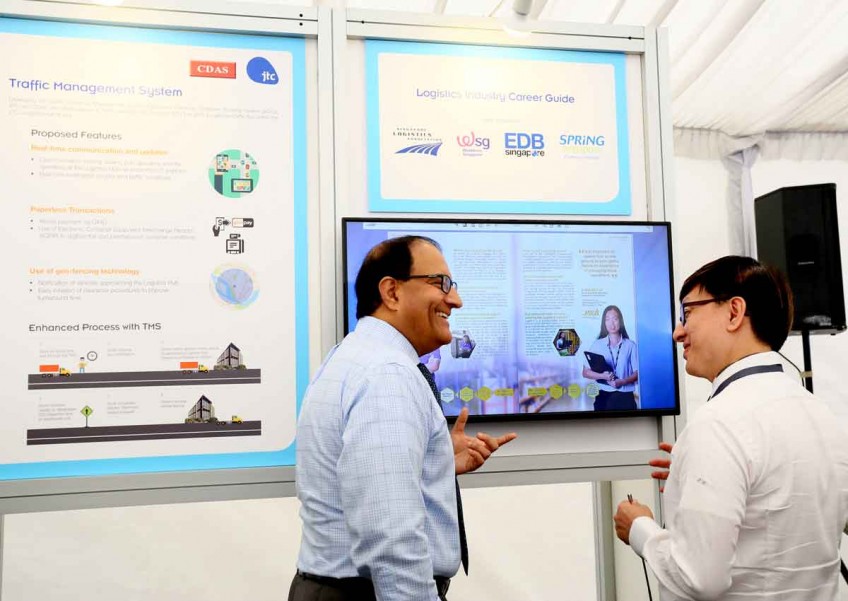Road map to boost Singapore's role as global logistics hub

Logistics - the art and science of moving stuff around in a fast-paced economy - is the latest industry to face a bold makeover in the Government's $4.5 billion Industry Transformation Programme.
The goals are: to be operationally excellent, to be leaders in innovation, and to build up a strong core of local logistics talent and firms.
They were set out by Minister for Trade and Industry (Industry) S. Iswaran at the launch of the Logistics Industry Transformation Map (ITM).
The road map for logistics, aimed at reinforcing Singapore's position as a global logistics hub, follows ITMs for the food and beverage and precision engineering sectors.
The logistics transformation is set to add $8.3 billion in value to the sector and create 2,000 jobs for professionals, managers, executives and technicians (PMETs) by the end of the decade, said Mr Iswaran.
He noted that the industry is a "critical enabler" of the economy and is expected to continue on a growth trajectory, fuelled by global trends.
"The Logistics ITM will support enterprise-level efforts to transform and grow through productivity and innovation. It aims to nurture a strong Singaporean core through talent development," said Mr Iswaran at the ground-breaking ceremony of the JTC Logistics Hub @ Gul in Tuas.
"This in turn will help our companies, in particular, the small and medium-sized enterprises, to scale up and internationalise."
NURTURING SINGAPOREAN CORE
The Logistics ITM will support enterprise-level efforts to transform and grow through productivity and innovation. It aims to nurture a strong Singaporean core through talent development.
This in turn will help our companies, in particular, the small and medium-sized enterprises, to scale up and internationalise.
Under the road map, the Government will work closely with key firms in implementing technologies that "push the frontier of productive operations in Singapore", he added.
It will invest in next-generation facilities offering opportunities to deploy automation, such as the new JTC Logistics Hub @ Gul.
Mr Iswaran noted that it is key for companies to specialise and deepen their capabilities in key sectors, including food and healthcare logistics, e-commerce fulfilment and aerospace service logistics.
Centres of innovation and centres of excellence will be set up to help firms build differentiating capabilities.
To drive innovation across the industry, the Government will also work with research institutions and universities to bring about new approaches in areas such as digital supply chains and e-commerce logistics, he said.
Mr Iswaran added that the transformation of the industry will spell "exciting opportunities" for the workforce, as "rank-and-file jobs will require more skills, while new professional roles will emerge".
He noted that the demand for specialist roles will likely increase in the next few years.
One such role is that of solutions engineer Pang Jin-Zhou from Bollore Logistics, whose job involves working with Bollore's clients to drive productivity gains by designing and implementing automation systems.
Opportunities for career progression are also expected to improve.
The Logistics Professional Conversion Programme under the Adapt and Grow initiative will help those making a mid-career switch transit smoothly into the industry, while Workforce Singapore will help the current workforce acquire niche and emerging skills through the Industry Catalyst Programme.
By mid-next year, the Government will launch the Skills Framework for Logistics, a guide for individuals and companies on career pathways, job roles, requisite skills and wages in the industry, he said.

This article was first published on November 17, 2016.
Get a copy of The Straits Times or go to straitstimes.com for more stories.